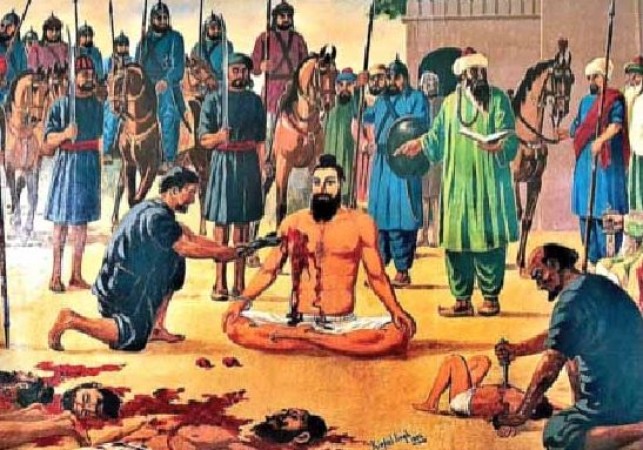
In the annals of history, certain figures rise to prominence not only for their military prowess but also for their unyielding spirit and unshakable commitment to justice. Banda Bahadur, a name etched in the chronicles of India's struggle against tyranny, was one such remarkable personality. His life's journey is a testament to courage, resilience, and the unwavering pursuit of righteousness.
Early Life and Transformation
Banda Bahadur, originally known as Lachman Dev, was born in Rajouri, Jammu, in 1670. His early life was marked by spiritual pursuits and a quest for truth. However, destiny had other plans for him. Captured by the Mughals during their conquest of Punjab, he was forcibly converted to Islam and renamed Aziz-ud-din. Despite this conversion, he continued to be drawn to his native Hindu faith, and the seeds of his future transformation were sown during these tumultuous times.
The Rise of the Warrior Saint
Banda Bahadur's transformation from Aziz-ud-din to a warrior saint was catalyzed by the cruelties of the Mughal regime. Witnessing the oppression and religious persecution of his fellow Hindus ignited a fire within him. His deep-rooted spirituality and unwavering commitment to justice drove him to rise against tyranny and restore the principles of righteousness and equality.
Formation of the Khalsa Army
Banda Bahadur's journey took a monumental turn when he encountered Guru Gobind Singh, the tenth Guru of the Sikhs, in 1708. Under Guru Gobind Singh's guidance, he embraced his true identity and was baptized as a Sikh. With Guru Gobind Singh's blessings, Banda Bahadur took up the cause of the oppressed and formed the Khalsa army, comprising both Sikhs and Hindus who shared his vision of a just and equitable society.
Challenging the Mughal Rule
Banda Bahadur's leadership and the formation of the Khalsa army posed a significant challenge to the Mughal rule. His military campaigns aimed not only to overthrow the oppressive regime but also to restore religious freedom and protect the rights of all communities. The battles fought by Banda Bahadur and his followers were not merely for territorial gains but for the ideals of justice and liberty.
Capture and Martyrdom
While Banda Bahadur achieved significant successes, his journey was marred by betrayal and treachery. He was captured by the Mughals in 1715 after a prolonged siege at the fortress of Gurdas Nangal. Despite facing unimaginable torture and hardships during his captivity, Banda Bahadur remained steadfast in his beliefs and refused to renounce his faith. His unyielding spirit and commitment to his principles earned him the title of a martyr.
Legacy and Inspiration
Banda Bahadur's legacy continues to inspire generations. His struggle against tyranny and his dedication to justice echo in the hearts of those who seek to uphold human rights and equality. His life's story is a reminder that even in the darkest of times, the indomitable spirit of a single individual can spark a movement that challenges oppressive forces.
Reflecting on Banda Bahadur's Message
Banda Bahadur's message goes beyond the battlefield. It emphasizes the importance of preserving one's identity, regardless of the circumstances. His journey from Aziz-ud-din to Banda Bahadur illustrates the power of inner conviction and the ability to rise above adversity. His life also teaches us that the fight for justice requires not only physical strength but also a deep understanding of human values and a commitment to upholding them.
Conclusion: A Warrior Saint's Enduring Legacy
Banda Bahadur's life embodies the essence of a warrior saint – someone who transcended personal struggles to champion the cause of justice for all. His legacy serves as a reminder that the fight against tyranny is not limited to a particular time or place; it is a continuous journey that demands unwavering dedication. Banda Bahadur's story resonates as an eternal beacon of hope and inspiration for those who strive for a world where justice prevails and humanity flourishes.
Echoes of Suffering: The Untold Story of India's Massive Holocaust
Comparing British Colonial Rule and Mughal Rule: Assessing Atrocities and Impact on India